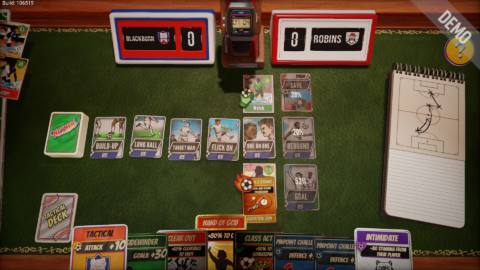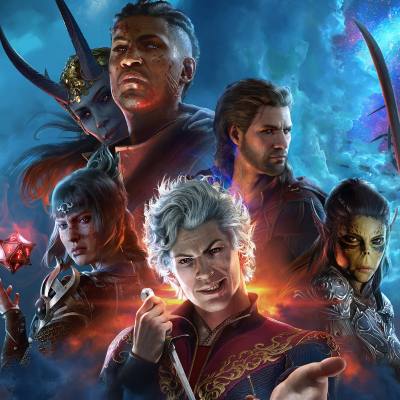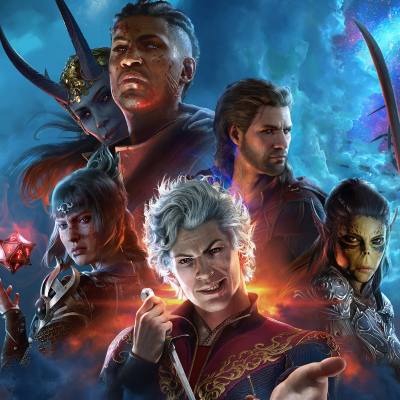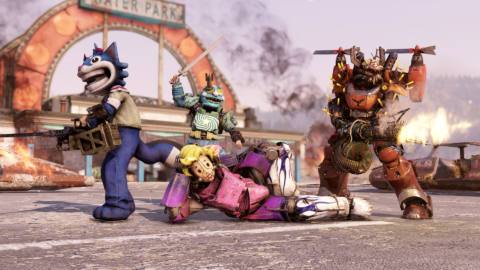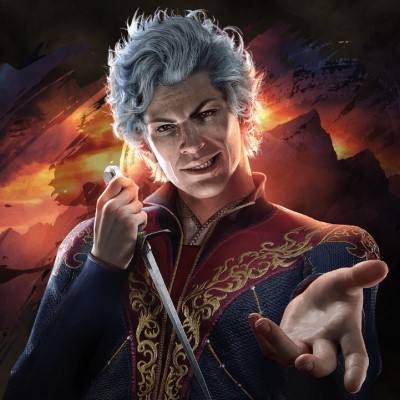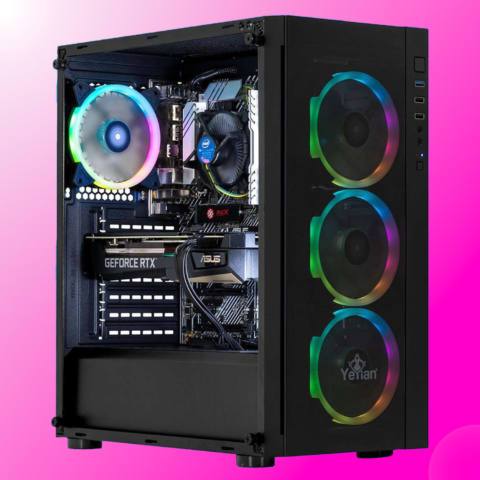The sepia-soaked noir roster of Deadlock is packed with character, and characters it turns out—a total of 22 of them so far, with more in the murky future. There's an argument for anything of them as the best Deadlock character, each having nuances that could fill a textbook: with four abilities per character, base and scaling attributes, and any number of ways to equip them from Deadlock’s packed item shop, the options are truly dizzying. We’ve all been there, when you’re new to a game and trying to get the lay of the land to decide which character you should try out, or have a really bad game and are left wondering—was it me, or is that big blue demon guy really strong?
Thankfully, between deep dives into strategy chats, tournament footage, community opinions, and hundreds of hours of gameplay, Deadlock’s pecking order is starting to take shape. RIsing from the foggy mists of MOBA island, down near hero shooter bay, a Deadlock tier list sits on an amorphous throne, prepared to guide your picks and remind you why you might be struggling in lane. Just remember that the team at Valve is tweaking Deadlock regularly, sometimes multiple times a week, so this list is as fluid as Viscous himself.
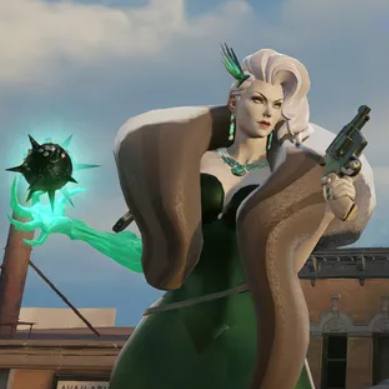
Deadlock beta: How to get in
Deadlock characters: Full heroes and abilities list
Deadlock crosshair: How to customize yours
The best Deadlock characters in 2024, in short
- Abrams: Durable and packed with crowd control
- Dynamo: A versatile team player
- Haze: A stealthy brawler who scales
S Tier heroes
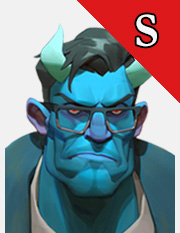
Abrams
Good at: Nearly everything | Bad at: Long range
Incredibly durable and packed with crowd control, Abrams is a monster who can thoroughly control every part of the game when in the hands of a skilled player. With how tough he is to kill, Abrams excels in teamfights, dealing a ton of damage with his heavy melee strikes and shotgun while pinning down the most dangerous enemies. His laning phase is also strong—especially given his ability to stay healed up using his life drain ability and passive regeneration ability.
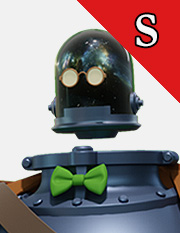
Dynamo
Good at: Big teamfight plays | Bad at: Not a lot
Dynamo is Deadlock’s most dapper maître d’, serving up the enemy team on a platter, ready to be devoured by a barrage of damage. With an area of effect knock-up, an area heal, and an ultimate that locks down entire teams, you’d be hard-pressed to find a more versatile, make-or-break teamfight superstar.
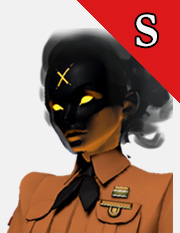
Haze
Good at: High damage teamfighting | Bad at: Playing from behind
At the top of the small pile of late-game hyper carries is Haze, who can come out of stealth into a teamfight and use her ultimate to quite literally delete the entire enemy team. Haze can chase down fleeing enemies, 1v1 players who don’t have the crowd control to stop her, and then clean up in both skirmishes and teamfights with her ultimate. A Haze that gets ahead can scale until they’re nearly unstoppable, so take care.
A Tier heroes
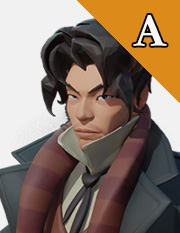
Pocket
Good at: Mobility, trickery, and survival | Bad at: Surviving Silence Glyph
The most slippery and impossible to pin down of all Deadlock’s heroes, Pocket is an all-star in skilled hands, able to drop into the middle of the enemy team and shred them to pieces with his ultimate Affliction, which debuffs enemies with damage over time. His teleport ability can give him an engage tool, but veteran Pocket players will engage with other mobility items, saving his teleport to deal damage and make a quick escape. With a Pocket in the match, you have to be extra careful.
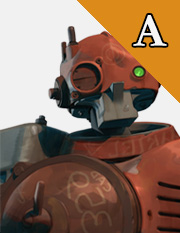
Bebop
Good at: Big flashy plays | Bad at: Escaping enemies
Loved and hated in equal measures, Bebop is a powerful hero for pulling enemies out of position with his hook ability. More than that, he can be built a variety of ways, scaling his bomb ability with both Spirit and its built-in stacking mechanic, focusing on his Hyper Beam ultimate, or on his powerful gun with Bullet items. With his ability to set up a kill on a crucial enemy at the core of his power, Bebop is a terror that forces the other team to play around the lethality of his hook.
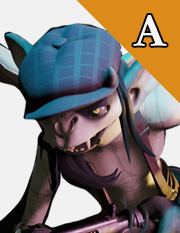
Ivy
Good at: Countering enemy plays and defending | Bad at: Not a whole lot
With her abilities covering the full range of utility, Ivy is exactly what you want from a support hero. Her ultimate lets her pick up an ally to set up an incredible combo (you haven’t known fear until you’ve seen Ivy flying around the middle of your team carrying a Bebop blasting Hyper Beam or a Haze using Bullet Dance) or just zip an ally across the map carrying the Urn objective. Don’t make the mistake of underestimating her.
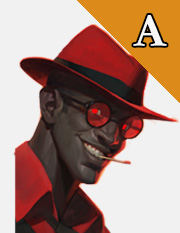
Infernus
Good at: Massive damage output | Bad at: Overcoming anti-heal
Outputting a simply unreasonable amount of damage is Infernus’s specialty, with his Afterburn passive ability, and he’s a dangerous laning opponent with his ability to set you on fire (and keep you on fire). His ultimate Concussive Combustion can deliver a massive area-of-effect stun, helping initiate or turn a fight while his damage output and lifesteal healing make him a threat at all stages of the game, but he’s surpassed in his role by Haze.
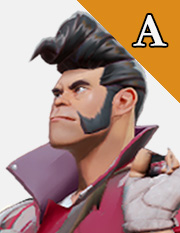
Shiv
Good at: Mobility and survival | Bad at: Overcoming anti-heal
In a game absolutely packed with burst damage, Shiv is Deadlock’s version of a cockroach—with his passive Bloodletting turning a third of damage he takes into a damage over time instead. His ultimate, Killing Blow, is a powerful fight ender that guarantees enemies below roughly 30% health are in danger of instant death even at medium range, and making use of it helps Shiv continue to snowball his lead if he gets ahead of his opponents.
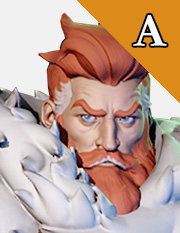
Kelvin
Good at: Rotations, picks, and counter-engage | Bad at: Overcoming anti-heal, long range
Every game has its share of frustrating characters to go up against, and Kelvin is best friends with them all. As a sort of long-range ice mage, Kelvin has powerful poke with his Frost Grenade and Arctic Beam abilities, but his true power is in his Ice Path, which creates an ice bridge under his feet as he moves anywhere he wants. His ultimate Frozen Shelter is also an incredibly useful tool, allowing him to protect his team or lock an enemy into a dome with him for a sure execution.
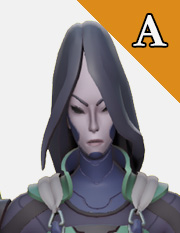
Yamato
Good at: Mobility and burst damage | Bad at: Long range, playing when her ultimate is down
Yamato rides to success on the back of a versatile kit and powerful weapon. Her shurikens are strong on their own (and have been nerfed as a result), but her alternate fire is a handful of small bombs that explode in an area of effect when they hit anything. Yamato’s true ace in the hole is her ultimate, Shadow Transformation, which enables her to make big plays at crucial times. With this buff active, Yamato can set up the ultimate Midboss steal, or just reach and assassinate a pesky enemy.
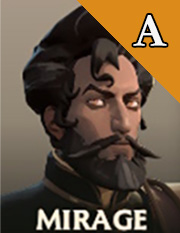
Mirage
Good at: Poke damage and map pressure | Bad at: Surviving burst damage
The latest addition to Deadlock’s roster, Mirage has an unusual combination of abilities that have positioned him as a powerhouse during the early and mid game. With his Djinn’s Mark ability and strong medium range rifle, he can rack up a multiplier between last hits and drive even durable opponents out of lane to heal. His ultimate ability, Traveler, teleports him anywhere on the map in seconds, allowing him to pose a threat at all times.
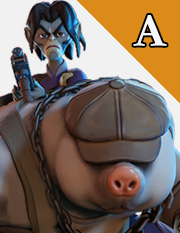
Mo & Krill
Good at: Crowd control and laning sustain | Bad at: Surviving his huge hitbox
An incredibly powerful laning duo, Mo & Krill bring the most extensive single target crowd control kit to Deadlock. With a nearly five-second area disarm on their Sand Blast ability, a 1.5 second knock-up when they follow up with their Burrow ability, and over three seconds of stun on their Combo ultimate—Mo & Krill are a dangerous and frustrating 1v1 matchup. They’re deadly in small skirmishes and can also lock down and pick off targets for their allies in team fights.
B Tier heroes
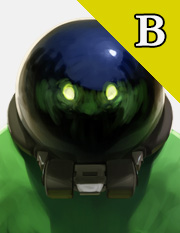
Viscous
Good at: Mobility and being a jack of all trades | Bad at: Surviving Silence Glyph
Viscous is a powerful laning hero who can poke enemies relentlessly with his Splatter and Puddle Punch abilities, while always having a backup plan: The Cube, an ability that makes him (or an ally) invulnerable and gives increased health regen for a few seconds. Being able to simply deflect any number of direct attacks The Cube makes him valuable at all stages of the match. Viscous has clear limits, though: his ultimate isn’t as impactful in open spaces and his gun is on the weak side. A true utility man.
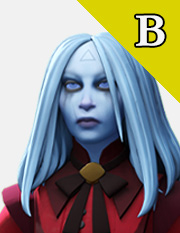
Vindicta
Good at: Finishing targets | Bad at: Playing from behind, providing utility
Deadlock’s sniper is still a powerful hybrid damage source who can snowball out of control, but with her rifle’s damage falloff range reduced in recent patches, she has to get in closer to deal damage now, making her easier to deal with despite zipping around with her Flight ability. Vindicta does her best work when she is hanging out in the back of a skirmish or team fight, free to rain down automatic fire and well-timed Assassinates to secure kills.
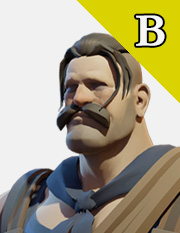
Lash
Good at: Rotations and big teamfight plays | Bad at: Overcoming Slowing Hex
Despite recent nerfs, Lash is still the most mobile character in Deadlock and maintains a high skill ceiling. While his burst firing gauntlet-gun isn’t among the best, he has Flog to top up his HP while laning. Central to Lash’s power is the impact his Death Slam ultimate can have in controlling teamfights. Good Lash players find creative paths through the map and set up high-damage uses of his Ground Strike on multiple enemies, but he’s more situational than heroes higher on the list.
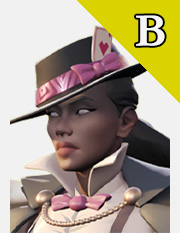
Wraith
Good at: Single target damage and escapes | Bad at: Targets that can escape Telekinesis
With her hard-hitting tommy gun and Teleport ability, Wraith is a slippery hero who’s strong in 1v1 scenarios and perfect for a split push. With her Telekinesis ultimate, she can get a guaranteed stun on a target and secure the kill by dumping her entire magazine into their face with Full Auto and then drop all of her cards using Card Trick. However, compared to other high damage carries, Wraith doesn’t keep up in team fights towards the late game.
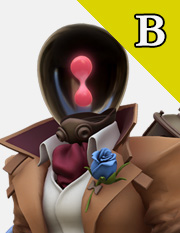
Paradox
Good at: Setting up huge plays and poking | Bad at: Enemies who position well against her
Tricky to learn and with a complex kit, Paradox can use their Paradoxical Swap ultimate to pull enemies out of position for a definite kill while blocking damage with their Time Wall ability. As a hybrid damage dealer, Paradox can deal intense damage with their Kinetic Carbine ability when specced for Bullet, and the burst-fire of their basic left-flick attack is no slouch either. Most of what limits Paradox is the skill required to land their skill shot ultimate, Paradoxical Swap, while setting up Time Walls to swap through and then escape the position you’ve just swapped into.
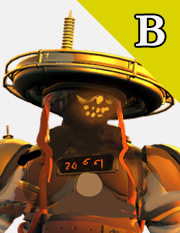
Seven
Good at: Big area of effect damage | Bad at: Overcoming Knockdown
With individual skills so impactful that you can build around any of them, Seven has a flashy ultimate in Storm Cloud that every player has fallen victim to at least once. But while he does have a strong ability kit, he lags a bit behind some of the other damage dealers in how his damage can be avoided or mitigated. It’s all-too-common to pop his ultimate Storm Cloud just to be killed in the process. Seven’s biggest strength is excellent crowd control in Static Charge.
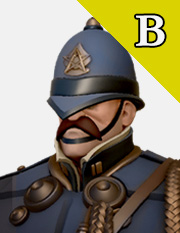
Warden
Good at: Chasing enemies | Bad at: Overcoming anti-heal and surviving burst
With a forgiving kit that allows him to harass and chase enemies courtesy of his Alchemical Flask and Willpower abilities, Warden can be a dangerous enemy to face when roaming in the early and mid game. Countless newer players have fallen victim to his Binding Word ability, which roots an enemy after a delay unless they manage to get far enough away, and his Last Stand ultimate gives him massive healing and damage for a brief time.
C Tier heroes
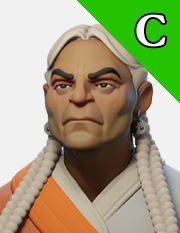
Grey Talon
Good at: Burst damage and finishing kills | Bad at: Surviving to scale, stretching out fights
Don’t get us wrong, Grey Talon has a useful kit—in particular, Charged Shot is a great ability for his Spirit build, piercing enemies and adding charges with upgrades so he can keep sending arrows downrange. His ultimate Guided Owl is a high-damage stun that can go anywhere, perfect for finishing off a laning opponent who doesn’t respect his damage. At high risk of being pounced on and killed before he can output consistent damage.
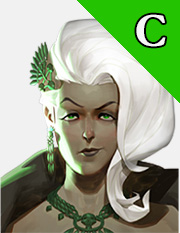
Lady Geist
Good at: Dueling and poking | Bad at: Overcoming anti-heal and landing her ultimate
in the laning phase, Lady Geist can be an absolute terror to face, with her Essence Bomb providing her some of the lowest cooldown ranged area damage in the whole roster, and her Life Drain ability allowing her to win close-range fights and heal. But once team fights and skirmishes start breaking out, and her enemies start scaling, Lady Geist struggles. Her ultimate Soul Exchange in particular is difficult to get value out of with its short range.
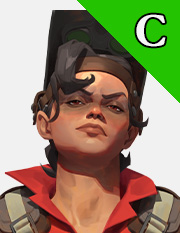
McGinnis
Good at: Split pushing and sustaining | Bad at: Being a big impact teamfighter
As a split-pushing focused hero, McGinnis can be powerful against uncoordinated teams that react slowly to her pressure on side lanes, allowing her to farm up souls freely and destroy guardians, walkers, and break open the enemy base. However, unless she pulls massively ahead in souls, her impact in teamfights is significantly less than other heroes. There’s a lot working against her.

